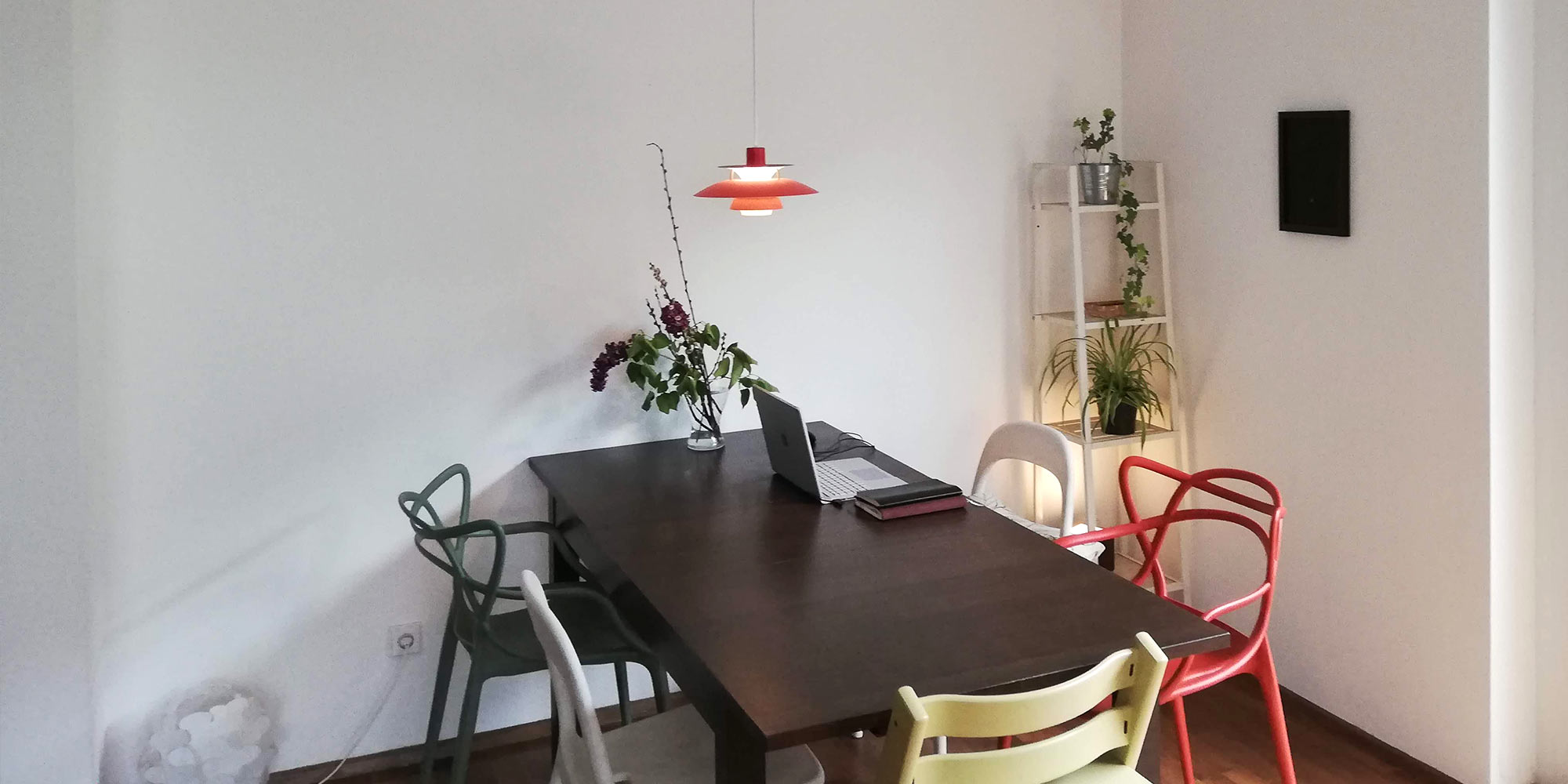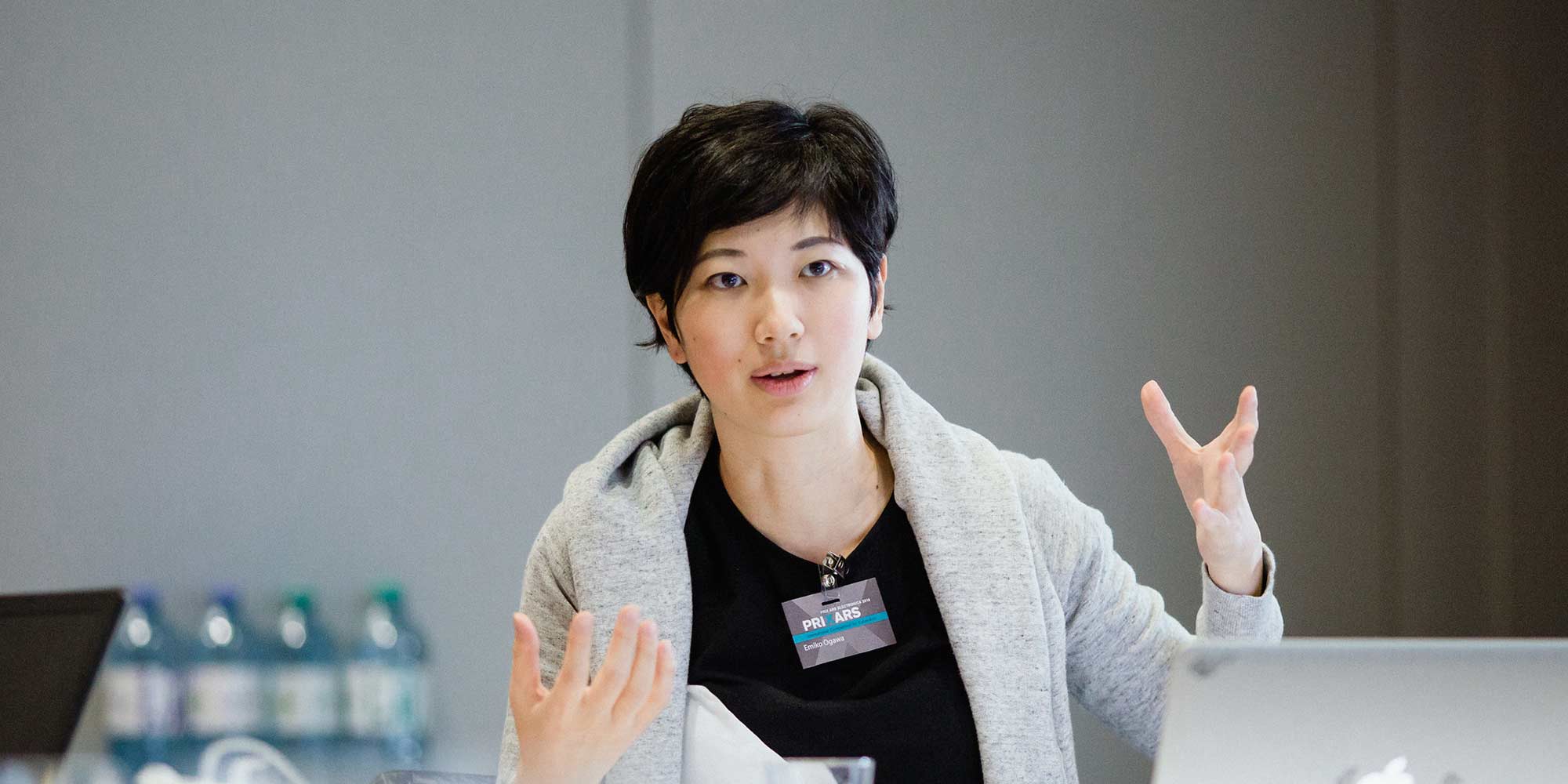The worldwide protective measures taken to stem the spread of the corona virus also have an impact on the Prix Ars Electronica. The Jury Weekend planned for early May 2020, during which experts in their field would have traveled to Linz to select this year’s prizewinners, will be moved entirely to the online world. This is not only a new challenge for the participating jurors, but also for Emiko Ogawa and her team, who have been working intensively on this changeover in recent weeks.
Emiko, what is the plan for the Jury Weekend in early May 2020?
Emiko Ogawa: We have decided not to postpone the jury discussions, which would normally have taken place here in Linz, to a later date, but to hold them online with several teleconferences in the already planned time frame. The decision was not easy for us, after all, we had already booked all the accommodation and flights for the jurors.
The Prix Ars Electronica Jury Weekend at the beginning of May is an important event for the entire Ars Electronica annual schedule, so we can’t postpone the jury’s decisions. From May 1 to May 3, 2020, five jurors from four categories each will meet online to select the best media art works from the fields of Computer Animation, Digital Communities, Interactive Art + and u19 – create your world. At the same time, the winners of the STARTS Prize 2020 will be chosen, whose jury will also meet online this weekend.
The jurors already have access to the artists’ submissions and are currently working on the pre-selection. Since we again had a large number of submissions this year, they are already trying to jointly reduce the number of submissions under discussion, so that they can then enter into intensive discussion rounds starting on May 1.

I’d like to take this opportunity to thank the participating artists who submitted their works to the Prix Ars Electronica this year. We extended the deadline for submissions by two weeks, and unfortunately March 16, 2020 was exactly the point in time when we were already struggling with the drastic changes of the coronavirus pandemic around the world. It must have been very difficult for many of them to apply at this time, but they really made an effort, thank you very much for that!
Back to Jury Weekend. Will the jurors’ online discussions take a different course than the previous “offline discussions” on site?
Emiko Ogawa: Yes, the problems are the time zones. Thankfully, jurors from all over the world are participating in the Prix Ars Electronica. For example, one person lives in South Korea and now has to join the discussion at 11 p.m. at night, while the other person from California has just gotten up and joins in at 7 a.m. local time. This is actually the central point why we cannot simply move the “analogue” jury meeting to the digital world. And we have to try to maintain the usual quality of this jury meeting.
We have a total of three days to make a decision, and because of these different time zones, that means a maximum of three hours pure discussion time per day. Thanks to the commitment of the jurors – for which I would like to thank them once again – I am optimistic that we will master the situation together. They are highly motivated, they have intensive work ahead of them and they really try to meet this challenge together with our team.
Impressions of the 2019 Jury weekend, when the jury members still met in person…
It can therefore be said that the year 2020 needs more preparatory work than before…
Emiko Ogawa: Exactly, we need to take more advantage of offline time. So far, a normal jury weekend has looked like we all physically met here in Linz at the Ars Electronica Center. Each category had its own room with a big screen, and the jurors looked through the submitted projects together and discussed them at the same time. That makes no sense this year. We’re trying to concentrate on the online discussion; the jurors look at the submissions themselves beforehand.
But that also means that things will be different compared to last year. Just think of the virtual reality projects submitted in the computer animation category – not every jury member can experience them “at home” in the same way. There are also different screen sizes – who has a big cinema screen with a nice resolution at home? It is not us who provide the technical equipment on site, but the jurors have to make do with their personal equipment.

How is your team doing with this transition?
Emiko Ogawa: We have been able to gather a great deal of experience at the jury meetings here in Linz in recent years. We basically know how the process is structured, we know what we can prepare in advance. Unfortunately, we can no longer fall back on this know-how.
“At the beginning I didn’t realize how many changes are needed here. We have to drastically rethink the jury meeting and at the same time maintain the quality in this form of online communication. As I said, due to the different time zones, the actual discussions are much shorter than before. Keeping the balance is a big challenge.”
First we had to decide, together with our technical team, on a suitable teleconferencing system to be used for the jury session. We really tried out a lot of tools and tested them intensively for our needs. Even this selection of the central communication tool took a lot of time. Of course we knew a lot of online tools before, but there is a difference between meeting online for an hour or moving a whole jury weekend to the online world.
 One of the many home offices, here from Emiko Ogawa
One of the many home offices, here from Emiko Ogawa
In addition to a suitable teleconferencing software and our existing submission database, we also need other tools such as a whiteboard where all the jurors can take notes and structure them together in the jury session. For each category we will have a supervisor who will moderate the jury days and document the decisions. We are still in the process of preparing and testing all this and we are carefully discussing with the jury members how we can make the new online jury more effective.
How did the jurors react to this change?
Emiko Ogawa: Right after the extended submission deadline on March 16 2020, as the coronavirus pandemic reached more and more parts of the world and we started to work from our home offices, the alternative of a re-structured Teleconference jury meeting was intensively discussed, we carried out initial tests, and then asked all jury members whether they would like to be part of this new form of online jury. Almost all jurors agreed and clearly showed understanding for this new situation.
What is a great pity for me personally is that this social gathering can no longer take place in the usual way this year. So far we’ve invited the Prix Ars Electronica jurors to come to Linz, put together a supporting program and often met for the first time in person at a dinner at the Ars Electronica Center. The jurors, who are reassembled each year in each category, have also introduced themselves to each other here.
We’ve already done this round of introductions online – five times in all, for each category of the Prix Ars Electronica and for the STARTS Prize. This brief stepping out of the technical discussion and the informal coffee talks have been very important to all of us so far – we as organizers should not only support the jurors in being effective online, but also in feeling comfortable even when they’re sitting in front of their screens in their own home offices. I hope that we will be able to do this in 2020 as well.
What does the further schedule look like after the jury weekend?
Emiko Ogawa: After all, the jury meetings take place outside the public eye. After the final decisions, we will, as always, first inform the winners and gather the necessary information about the projects. In June we will then present the winners at a press conference. How we will then present the artists and their works is not yet entirely clear – it depends on the form in which the Ars Electronica Festival will take place. We will have to be very creative!
